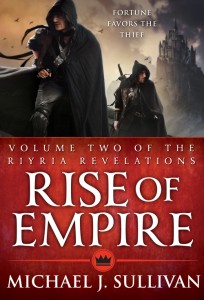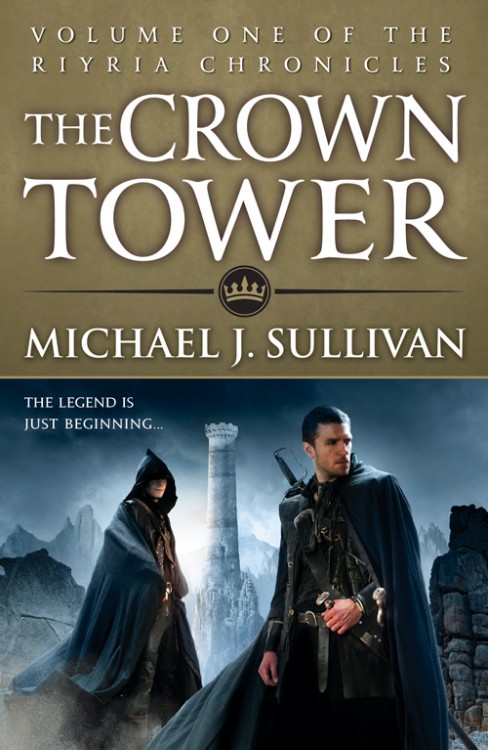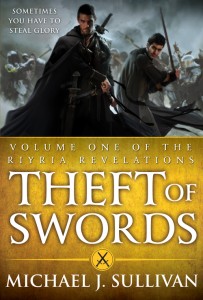 Stumbled across a an interesting nugget in a recent interview with Michael J. Sullivan on SFF World:
Stumbled across a an interesting nugget in a recent interview with Michael J. Sullivan on SFF World:
You’ve got some other stories in the works, do you want to let us know about any of them?
Well some are older pieces that I’ve resurrected, which means a complete rewrite from the ground up, but the seed of the story remains intact. If I try to talk about my books I end up rambling, so I’ll give you the “back of the book blurbs” which do a better job than I would if I just talked about them. The first is Antithesis:
Have you ever wondered about how the world would end?
No, well don’t sweat it, most don’t and those that do figure it will come about due to a dramatic change in climate, a widespread disease, or war. That’s what we’ve been taught to believe and our brains are always eager for a rational explanation, but our minds weren’t always so logical. There was a time when people believed in myths and magic, but in today’s scientific age if it can’t be proved, well it doesn’t exist.
I was the same way until I met Winston Stewart. That was the day I learned to believe in much more than I could see—not the least of which is fate. Fate is an amazing thing. It put Ghandi in South Africa, Nelson at Gibraltar, Newton under the apple tree, and Winston Stewart on that train in Alexandria Virginia. You don’t know who Winston Stewart is? You will.
###
I also have literary fiction piece which, in many ways is the antithesis of The Riyria Revelations. It’s the book that made me quit writing when I couldn’t get it published. Riyria is fast-paced, written in a simple style, and contains a sweeping epic involving likeable characters. A Burden to the Earth is a very simple tale about a complex man and his very small life. In this book I concentrated on constructing the prose and so it reads much differently than the simple, straightforward style I used with Riyria. Here is the blurb for it:
He learned values from Gunsmoke, ethics from Father Knows Best, and his place in the world from Ozzie & Harriet, but his life turned out much different.
A child of the fifties, Elliot Myers believed his parents, his teachers, his priest, and television when they promised him the American dream. Now at forty, and still living in his mother’s tiny condominium, he knows they all lied. Embittered by a world that moved ahead and left him behind, Elliot finds one last chance to free himself of forty years of waiting and makes his first, and final, grasp at life. Set in the early 1990’s A Burden to the Earth explores regret over lost innocence, nostalgia for the past, and the cost of dwelling on both.
I’ve seen Sullivan speak vaguely about some of the other projects he’s been working on since completing The Riyria Revelations (including a prequel trilogy that’s not included in the quote above), but never quite in so much detail. As I mention in my review of Theft of Swords, the first volume of Sullivan’s ‘trilogy’ (which is actually comprised of six volumes), Sullivan’s bread-and-butter appears to be his handle on Fantasy tropes and conventions and his ability to tell them simple, compulsively readable way that somehow manages to avoid feeling stale despite all the easy-recognized elements. These two descriptions are a step away from what Sullivan established with his Fantasy trilogy, most notably by both being set on Earth, rather than a secondary world and A Burden of the Earth steps entirely away from genre fiction. It’s nice to see authors diversify their library, but I’m sure that Sullivan fans (and Orbit Books, his publisher) would love to see him spending his writing time on the novels set in the world of The Riyria Revelations. It will be interesting to see which direction he goes.




